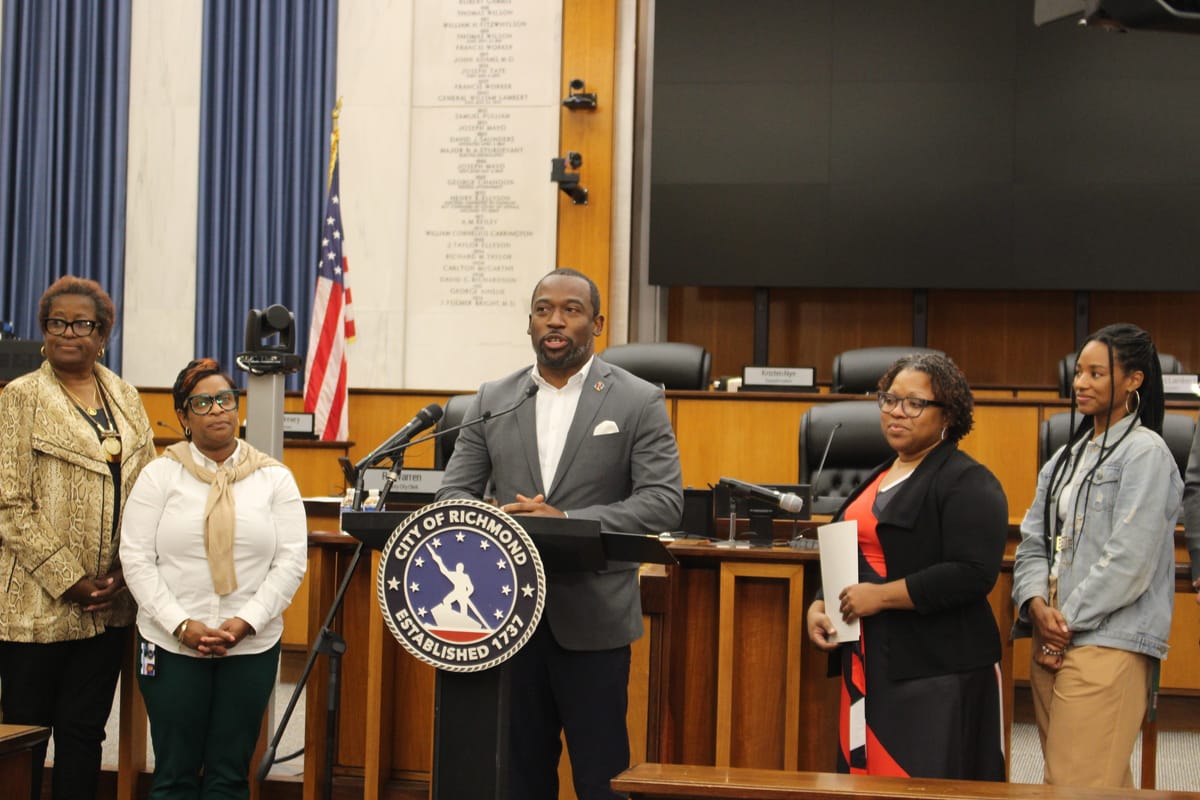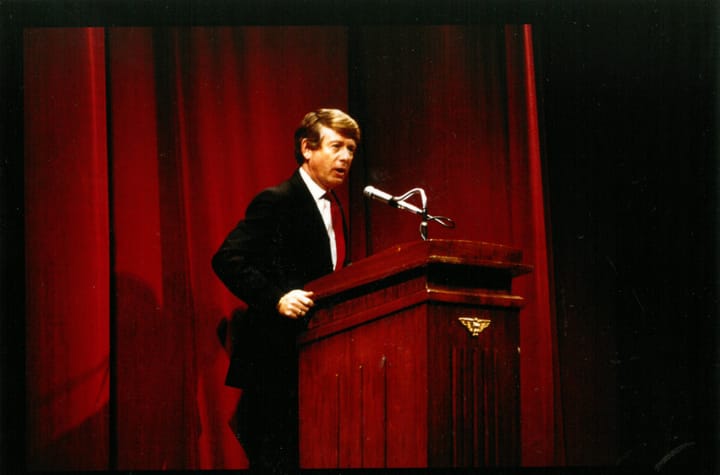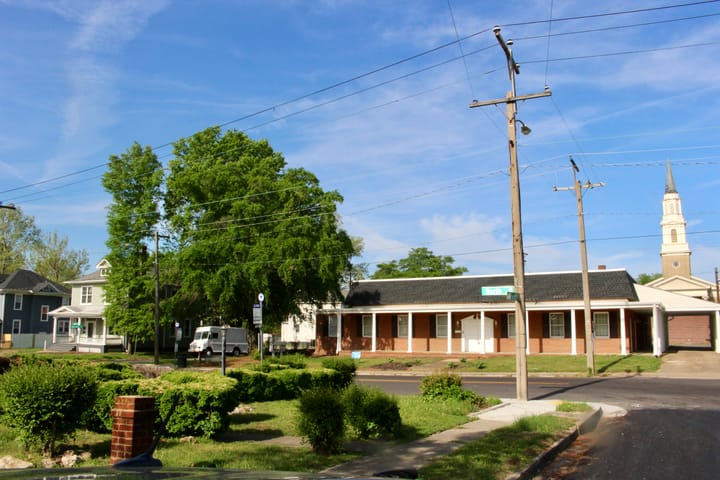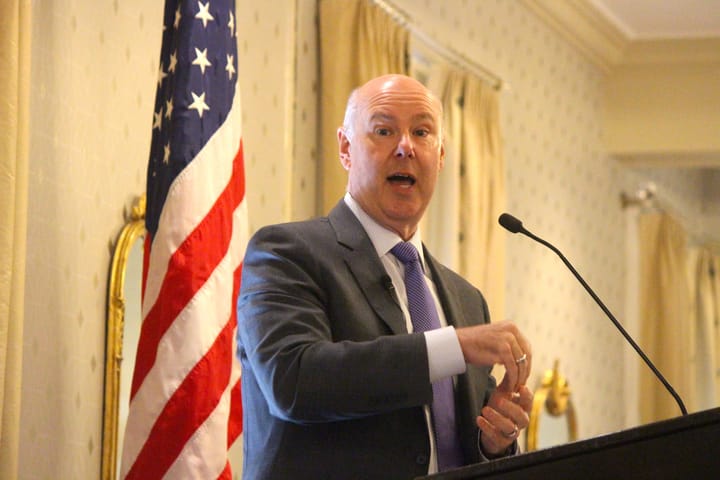
Stoney touts decrease in youth violence during tenure
Mayor Levar Stoney said youth violence in Richmond has decreased dramatically over his eight years in office, an outcome he linked to investments by the city in out-of-school programs aimed at increasing opportunities for young people in the hours when they aren’t required to be in the classroom.
At a press conference Wednesday, Stoney’s administration announced that the number of Richmond children involved in violent incidents dropped 40% between 2017 and 2023. Over the same time period, the number of children shot dropped by 35, a 64% decrease.
“That’s 35 fewer families experiencing unfathomable trauma,” he said.
The shooting figures, according to the Richmond Police Department, encompass children (defined as individuals under age 18) who have been shot during an aggravated assault, robbery or homicide and do not refer to the number of juveniles killed by firearms annually.
Data from the department shows the number of children shot annually has fluctuated widely over the past eight years. A 2017 peak of 55 was immediately followed by a sharp drop to 25 in 2018 and 24 in 2019, which was then succeeded by another increase.
In 2024, the city has seen 19 children shot to date, a number that if it holds would be lowest since 2017.
Source: Richmond Police Department. Through Oct. 10, there have been 19 children shot this year in Richmond.
Stoney attributed the eight-year decrease to millions of dollars the city has put into Richmond Public Schools, the Richmond Department of Parks and Recreation and non-governmental organizations like NextUp RVA and the YWCA that offer out-of-school programs for young people. That includes $3.7 million for partnering nonprofits and $13.8 million for youth programming by Parks and Rec, such as the We Matter Program that focuses on middle schoolers who have experienced gun violence, in the current budget.
“We've never said that this investment — whether the investment in RPS, the investment in Parks and Recreation, the investment in the Office of Community Wealth Building, the investments in out-of-school time — was the panacea,” said Stoney. “But what we have said is that it's the right thing to do for every child. We deeply believe that the children with the most resources shouldn't have all the opportunities.”
Richmond Superintendent Jason Kamras told The Richmonder positive out-of-school programming can “help us take some of the fuel out of the fire” for children who find themselves in potentially violent situations.
“It doesn't solve everything,” he said. “We're still awash in guns in the city, and that's a huge problem. There's still kinds of housing challenges and employment challenges and health care challenges, all which make life stressful for families and stressful for kids. … But everything that we're doing in school and all these out-of-school time programs truly help kids find purpose, find hope, and help them resolve things in a calmer, more productive way.”
An additional $3.5 million is also on the way in the form of a Safer Communities Program Grant from the Virginia Department of Criminal Justice Services. The administration has said the funds will go toward:
• Partnering with YWCA Richmond to plan for Richmond’s first-ever Family Justice Center that will provide a safe, confidential, and welcoming place to aid survivors of domestic violence, child abuse, and sexual assault
• Hiring a Latino Youth Outreach Coordinator to work within the new Department of Neighborhood and Community Services in partnership with the Office of Immigrant and Refugee Engagement
• Expanding the RVA Reads program at Richmond Public Libraries
• Funding a Parks and Recreation mentorship program in Gilpin Court
• Funding quality improvement, data management, and expansion of programming for youth aged 11-19 through NextUp RVA
• Supporting ongoing engagement of We Matter youth through Parks and Recreation as youth transition to high school
• Enhancing the Mayor’s Youth Academy, which provides work-based learning opportunities to youth aged 14-24
• Supporting the third annual Teen Summit RVA
• Enhancing family engagement and youth credible messenger initiatives through the Department of Justice Services






